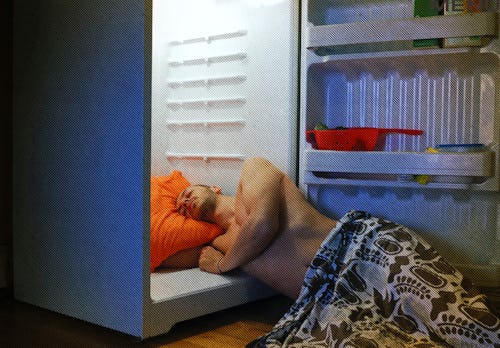We are literally losing sleep over climate change
We are literally losing sleep over climate change, according to science.

My partner doesn’t use air conditioning. I deeply respect this choice, but sometimes I just can’t sleep in his bed. That’s not me being in a mood — the ideal sleep temperature for humans is about 65 degrees and it’s well established that heat is a major cause of insomnia. The problem with all this is that trying to sleep when it’s too hot is becoming less and less of a choice — temperatures are rising globally, and now we are literally losing sleep over climate change.
A new study, which was published last week in the journal One Earth, used data from sleep-tracking wristbands used by 47,000 individuals in 68 different countries from 2015 to 2017 to find correlations between outdoor temperatures and human sleep patterns. What researchers found was that the average person is already losing about 44 hours of sleep a year. For context, that means that most people in the study lost more than an hour of sleep a night for a whole month of the year.
If just thinking about all this lost sleep is making you feel cranky, well, I’m afraid it gets worse because the sleep loss is worse for women and people who don’t live in affluent countries. According to the data, people in less affluent countries lost three times as much sleep as those in affluent countries and women lost 25% more sleep per degree of temperature rise. Apparently there’s only rest for the wicked, oops I mean most privileged.
In case you’re feeling hopeful that humans will either adapt to having less sleep or learn to sleep in the heat, sorry, but that’s not real. The scientists who led the study told the Guardian that there’s no evidence to suggest that humans can adapt to sleeping in higher temperatures.
“Growing numbers of people in many countries around the world do not sleep enough,” Kelton Minor, a professor at the University of Copenhagen, Denmark and lead author of the research, told the Guardian. “Worryingly, we also found evidence that people already living in warmer climates experienced greater sleep erosion per degree of temperature rise. We had expected those individuals to be better adapted,” said Minor.
What about napping? Will that help us cope with climate disaster? Unfortunately, the data also confirmed that most people don’t “catch up,” on sleep later, either. As attached to napping as I am, personally, it’s not a feasible option for many folks around the world. Look, I know this research is depressing, but we really need to grapple with the reality of the climate disaster we’re facing. Or, as Minor told The Guardian,“Our decisions, collectively as societies, will have costs in terms of sleep.”